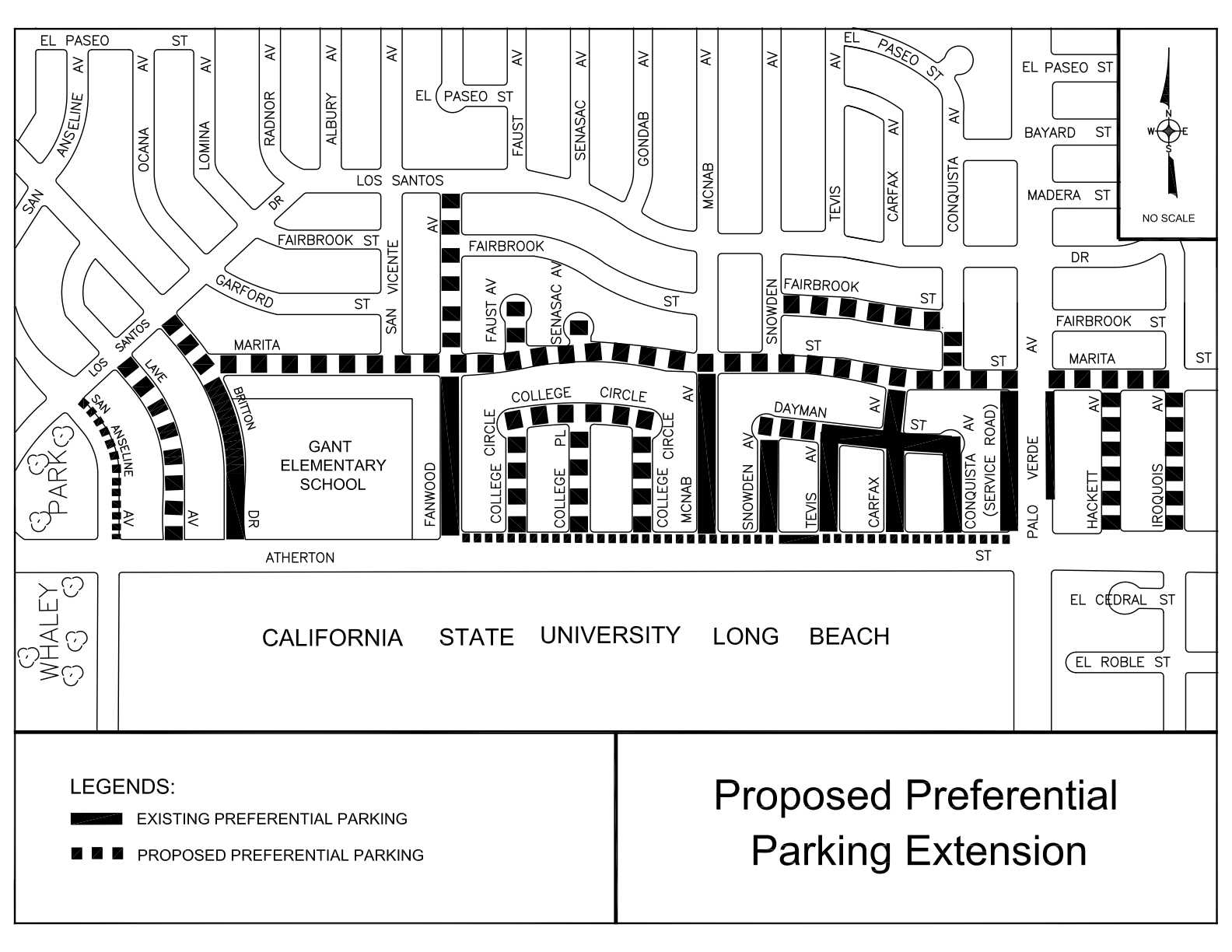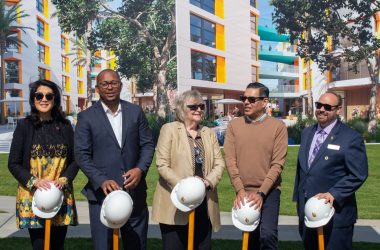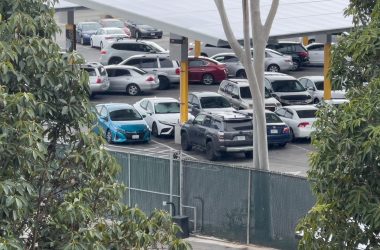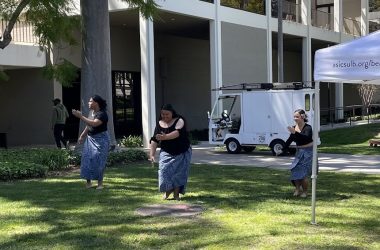For some residents of the neighborhoods closest to Cal State Long Beach, parking is a constant issue. Every fall brings an influx of students, some of whom choose to park in residential areas.
Some residents are pushing to get students off their streets, and the City of Long Beach has taken the earliest steps toward restricting parking.
Conflict between residents and students parking is nothing new. City councilmember Patrick O’Donnell, who represents the fourth district including the area north of Atherton Street, said that anger among Long Beach residents peaked last year.
“Last spring people felt like they weren’t being heard,” O’Donnell said.
Since then, a number of factors have worked to mitigate the problem.
Parking on campus has become easier, with as many as 500 general parking spaces going vacant on a daily basis, according to Interim General Manager of Parking and Transportation Services Mark Rudometkin.
CSULB President F. King Alexander also credits the U-PASS program, which allows free ridership of Long Beach Transit buses with CSULB ID, with reducing the number of students parking on residential streets.
“I have heard very few complaints since we’ve had everything up and functioning with the new parking structure and the U-PASS,” Alexander said.
Some residents are still pushing to get students to park on campus.
“Why don’t students park on the campus?” asked Gary Frahm, president of the Bixby Hill Community Association. “There’s no excuse except for cost.”
Bixby Hill is a gated community of multimillion-dollar homes located next to the university, at the end of Palo Verde Avenue. Frahm said that student traffic and parking along Palo Verde Avenue, which has no parking restrictions, created a dangerous situation.
“It’s like a gauntlet,” Frahm said.
To deal with the problem, David Roseman, traffic engineer for the city of Long Beach, has proposed increasing the current preferential parking areas to include several streets in the neighborhoods north of Atherton Street. Residents in the area are currently being surveyed, and if two-thirds of the respondents are in favor of Roseman’s proposal, it will be brought before the city council.
Many of the streets surrounding the school already have preferential parking, with parking limited to a set time and residents required to have permits. The permits cost $36 each, but the university has agreed to subsidize the cost for up to two permits per household, cutting the amount roughly in half. Regulations vary street by street, but most streets allow up to two hours of public parking without a permit.
Some residents in non-permit areas accuse students of speeding, leaving trash behind and blocking driveways.
Those accusations did not sit well with CSULB President F. King Alexander.
“I was somewhat offended to listen to some neighbors blame students as being the source of all their neighborhood problems from trash to burglary,” Alexander said.
Henry Hernandez, an undeclared sophomore, said he parks off campus because parking permits are too expensive. Hernandez admitted that students can create problems for people who live in nearby residences.
“Some students are jerks and don’t leave the proper 3 foot space in between,” Hernandez said. “I also know that one lady called the cops three times because one student kept parking halfway in her driveway. It’s like one bad apple ruins it for everyone.”
At $123 per semester, the cost of on-campus parking permits is seen by many as the root of the problem. Patrick O’Donnell, who is a CSULB alumnus in addition to being a city councilmember, said he’d like to see the price of the permit reduced, but added that it was probably unrealistic.
“I understand what it’s like to dig into your pocket for a parking permit and you don’t have enough,” O’Donnell said.
The cost of the permits, according to Rudometkin, cannot be lowered because the university is using revenue from its permit sales to repay bonds issued to build the new parking structure, which opened this semester. Rudometkin was quick to point out that even at $123, parking at CSULB is a relative bargain. Cal State Fullerton, for example, charges $162 each semester.
Not all residents approve of forcing students off their streets. Lezlie Kaner, a CSULB alumna who lives on Fanwood Avenue, said she was shocked that some of her neighbors want to restrict the public spaces in front of their homes.
“There is plenty of room for resident vehicles especially since most student parking occurs during typical school and business hours,” Kaner said, adding that she found the university’s subsidies for the permits to be “appalling.”
Preferential parking is not limited to the areas north of Atherton Street. Parking is also restricted on some streets east and south of CSULB, and councilmember Gary DeLong, who represents the third district, said he would investigate adding more zones if residents supported it.
“I cannot imagine opposing a permit parking area that is strongly desired,” DeLong said.
Chelsea Robertson and Lila Han contributed to this article.





I find the comments to this article, shall we say, uneducated. The problem neighbors are experiencing are 100% caused by the university and students. Yes I am one of the “elitist neighbors. I am also a neighbor who believes in the cause of the problem bearing the cost – not part of the cost. The entire cost. CSULB “neighbors” are being asked to pay for something that they did not cause. And contrary to one response – we DO NOT benefit from the use of CSULB facilities. The university should have properly plan the environmental effects of increasing enrollment and planned ahead (not now) to deal with a problem that could have easily been predicted with just a little forethought. Poor planning + increased enrollment and fees = neighbors payingextra to park on city streets? This is not the math I learned in college.
CSU Fullerton doesn’t have a neighborhood with multi-million dollar homes on its flanks. Apples and oranges comparing fees. If the neighbors around CSULB can afford multi-million dollar homes, they shouldn’t need to be subsidized for elitist parking ordinances that they ask for. DeLong and O’Donnell need to be pushed off the city council for helping steal public streets at the taxpayer’s expense. To punish our entire campus community for “a few bad apples” sends the wrong message. Being located next to CSULB is what helps the neighborhood homeowners property values remain high. With the board of trustees pushing for 10 percent tuition increases and the student Wellness Center fee due to hit next year, this is yet another attempt to push a university education out of reach for low-income students.
I don’t mind paying to park on campus, but I do mind subsidizing the surrounding neighbors’ elitism. If they want special permits to park on public streets, which my taxes also pay for, they should pay for the permits themselves instead of having student fees pay it. If we have to subsidize their parking permits, I say students should do drive-by trash dumping, ha ha. I agree with Jumbo, they also should be forced to subsidize our facilities by paying higher fees. That could offset their subsidized preferential parking; win/win.
yeah, f that, I’m riding my bike to school next semester. How do you like that, PARKING SERVICES and STUPID NEIGHBORS!
why are our administrators subsidizing the permits? By having a university in the neighborhood they have quick access to higher education and a place to exercize at (tennis and basketball courts, soccer field, pathways, a hiking trail, etc.)
I’m not against preferrential parking, but if those ungrateful-should-be-dead-by-now seniors want preferrential parking then let them pay for it!